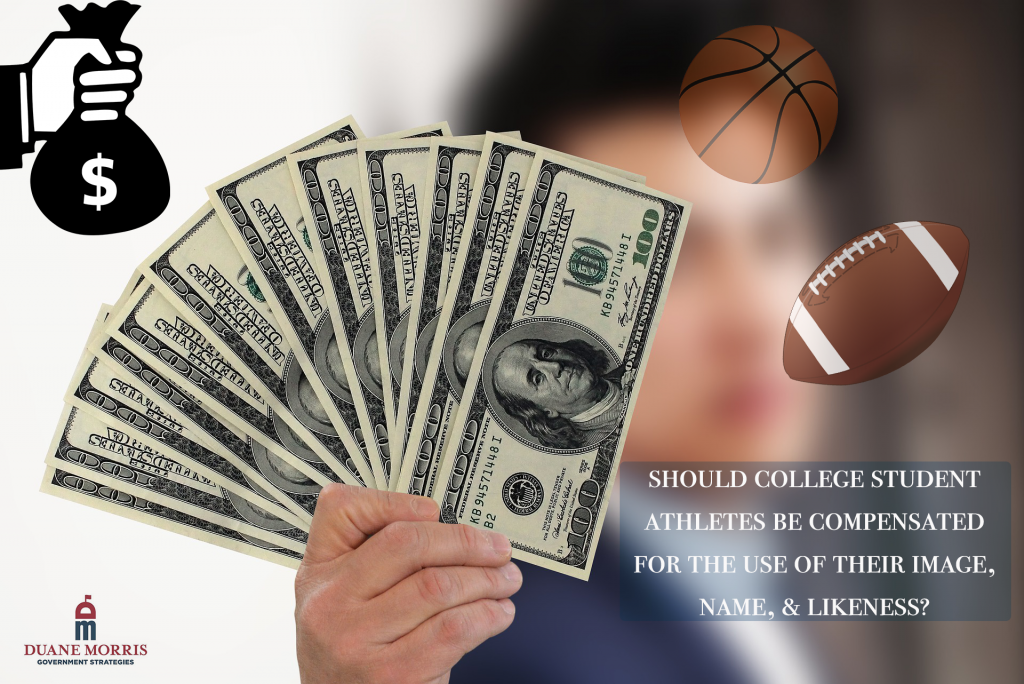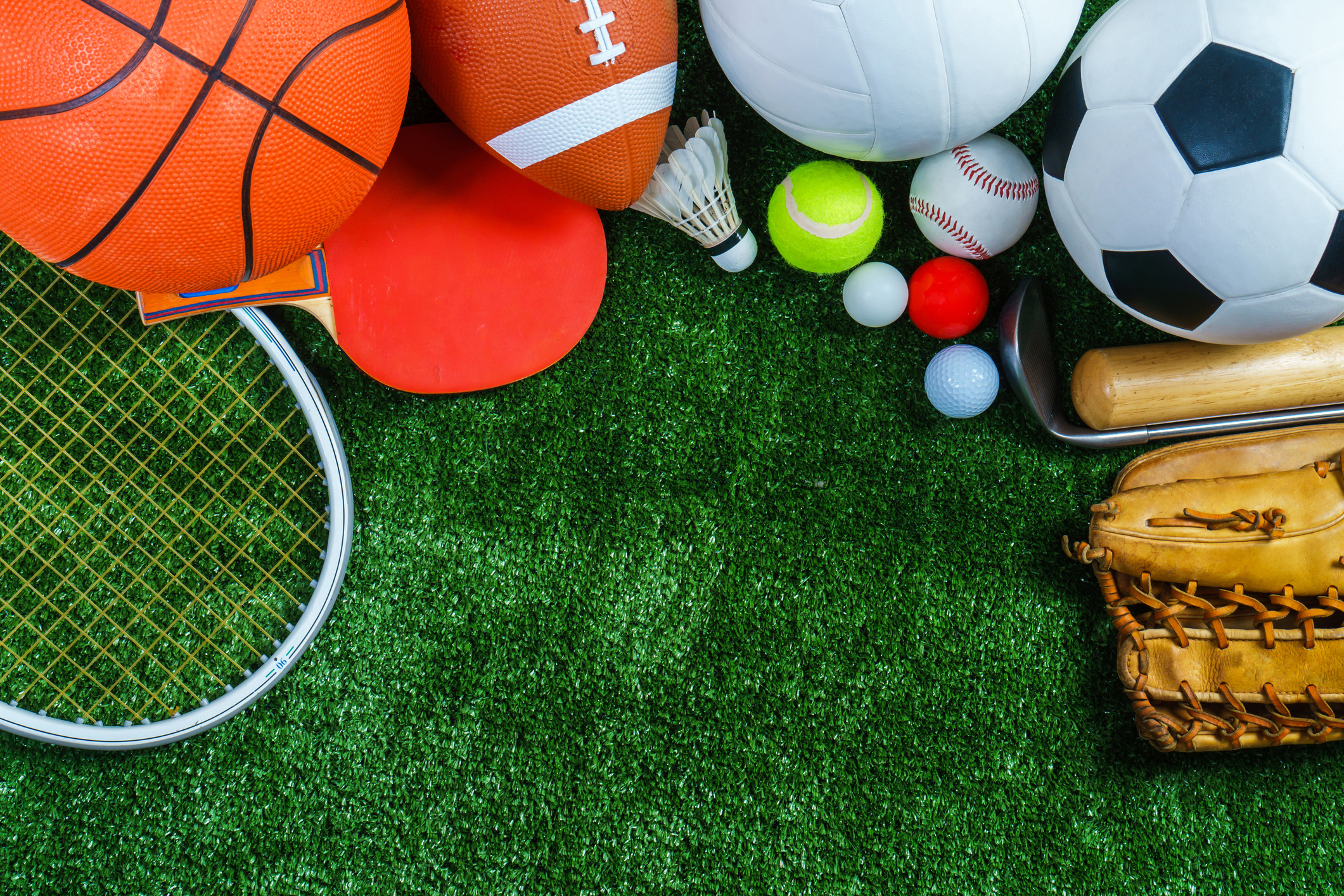
In the midst of the college football season, the debate over whether or not college athletes should be allowed to profit off of their image and likeness is heating up. College athletes help earn the NCAA, their schools, TV networks, clothing companies, video games, etc., millions, or even billions, in profit each year. Some people, including state lawmakers around the country, believe student-athletes should get a portion of those profits.
California: Student-Athletes Able to Earn Compensation in 2023
California became the first state in 2019 to enact a bill allowing college student-athletes to be compensated. Senate Bill 206, the Fair Pay to Play Act, passed the California Assembly and state Senate unanimously. The bill allows college student-athletes to earn compensation for the use of their own name, image, or likeness (athletic endorsements). The bill provides student-athletes the ability to obtain professional legal representation (i.e. a sports agent), as well as certain protections. The bill allows this to go into effect in 2023.
Community colleges are exempt from the bill, but the California Community Colleges are required to convene a working group to review current rules governing the use of student-athletes; names, images, and likenesses. The bill further prohibits student-athletes from entering into endorsement contracts which conflict with team contracts.
Organizations in support of the bill when it passed includes the National College Players Association, American Federation of Labor and Congress of Industrial Organizations, California Labor Association, California State Student Association, United Steelworkers, among others. Organizations opposed include the Association of Independent California College and Universities, California State University, Stanford University, University of California, and University of Southern California.
Florida: Student-Athletes Now Have an Intercollegiate Athlete Bill of Rights
Florida Gov. Ron DeSantis signed Senate Bill 646, the Intercollegiate Athlete Bill of Rights, into law on June 12, 2020, after being approved by lawmakers in the House and Senate. The bill, which goes into effect July 1, 2021, allows an intercollegiate athlete at a postsecondary educational institution to earn compensation for the use of their name, image, or likeness. The bill provides that any compensation must be commensurate with market value and may not be provided in exchange for athletic performance or attendance, and may only be provided by a third party that is unaffiliated with the athlete’s institution.
Institutions are prohibited from preventing or restricting an intercollegiate athlete from earning compensation for the use of their name, image, or likeness and stipulates that earning compensation is not allowed to impact the athlete’s grant-in-aid or athletic eligibility. The bill further prohibits a postsecondary educational institution from preventing or restricting an athlete from obtaining professional representation by a sports agent or attorney. Under the bill, a student-athlete is not allowed to enter into a contract for compensation if a term of the contract conflicts with a term of their team contract.
Senate Bill 646 also requires a postsecondary institution to conduct financial literacy and life skills workshops for a minimum of five hours at the beginning of an athlete’s first and third academic years. Such workshops will include information concerning financial aid, debt management, and a recommended budget for full and partial grant-in-aid for student-athletes based on the current cost of attendance, as well as include information on time management skills necessary for success. Such workshops will not include any marketing, advertising, referral, or solicitation by providers of financial products or services.
New Jersey: Fair Play Act Signed into Law this Fall
New Jersey Governor Phil Murphy signed the New Jersey Fair Play Act, S917, this September. The bill allows collegiate student-athletes to earn compensation for use of their name, image, or likeness. The bill passed the Assembly 56-16-2 and the state Senate 30-9 before being signed into law by Governor Murphy.
Under the bill, four-year higher education institutions are prohibited from preventing a student who participates in intercollegiate athletics from earning compensation as a result of the use of the student’s name, image, or likeness. The bill provides earning such compensation shall not affect the student’s institutional scholarship eligibility. The bill further provides an institutional scholarship shall not be revoked as a result of a student earning compensation or obtaining professional representation. Higher education institutions are further prohibited from preventing a student participating in intercollegiate athletics from obtaining professional representation, including sports agents or attorneys.
The bill prohibits student-athletes from earning compensation related to or associated with the development, production, distribution, wholesaling, or retailing of adult entertainment products and services, alcohol products, casinos and gambling (including sports betting, the lottery, and betting in connection with video games, online games, and mobile devices), tobacco and electronic smoking products and devices, prescription pharmaceuticals, a controlled dangerous substance, and weapons (including firearms and ammunition). Earning compensation from the above products/services shall result in the revocation of the student’s institutional scholarship eligibility.
The bill shall first be applicable in the fifth academic year following the date of enactment of the bill, which was approved on September 14, 2020.
Pennsylvania: Advocates Must Wait Until Next Session
Some Pennsylvania lawmakers hoped to accomplish in the 2019-20 session what California and others above accomplished, by establishing their own Fair Pay to Play Act. Senate Bill 949 was introduced, which would allow student athletes to retain their right of publicity in seeking endorsement deals. According to the bill’s co-sponsor memo, the bill would allow athletes to arrange business deals outside of their team duties without fear of losing their scholarships. The bill would also place no duty on schools to directly pay the athletes beyond the current practices, and would require the NCAA to allow Pennsylvania colleges and universities to participate in national championships and bowl games. The bill never advanced through the Senate Education Committee prior to the end of session, so lawmakers will have to re-introduce the bill in the 2021-22 legislative session.
South Carolina: Advocates Must Wait Until Next Session
Lawmakers in South Carolina also hoped to replicate the success of other states in implementing their own Fair Pay to Play Act with H. 4973. The bill provides student athletes at public institutions of higher learning to earn compensation for use of their names, images, or likenesses. The bill references a 2012 study by the National College Players Association and Drexel University Sports Management Program that found:
- For the 2010-11 academic year, the average annual scholarship shortfall as a result of out of pocket expenses for each Football Bowl Subdivision full scholarship athlete was $3,285;
- 82% of full scholarship athletes who live on campus and 90% of full scholarship athletes who live off campus live at or below the federal poverty level;
- During the 2010-11 academic year, the fair market value of the labor of the average FBS football and men’s basketball player was approximately $137,357 and $289,829;
- Ten FBS football players with the highest estimated fair market values in 2009-2010 lives below the federal poverty level with scholarship shortfalls despite their fair market values ranging from $345,000-$514,000, and their head coaches being paid on average of $3.5 million each, excluding bonuses; and
- From 2011 to 2015, FBS football and men’s basketball players forfeited an estimates $6.2 billion.
H. 4973 was referred to the House Committee on Education and Public Works, never advancing in the current legislative session.
Maryland: Collective Bargaining for Student-Athletes?
In Maryland, House Bill 548 in the 2019-20 session would have required the State Higher Education Labor Relations Board to adopt regulations authorizing and establishing the process for collective bargaining for student athletes. Collective bargaining would be allows for student-athletes who participate in an intercollegiate athletic program at a University System of Maryland institution, Morgan State University, St. Mary’s College of Maryland, or Baltimore City Community College.
The bill defines “collective bargaining” as good faith negotiations by an authorized representative of student athletes and an institution of higher education with the intention of reaching an agreement about scholarship terms, health insurance benefits, use of a student-athlete’s image or likeness, the establishment of an independent student-athlete advocate at the institution, and incorporating the terms of the agreement in a written memorandum of understand or other written understanding.
House Bill 548 received an unfavorable report from the House Appropriations Committee and was withdrawn. The bill therefore must be re-introduced in the next legislative session.
Latest DMGS Posts:
- Weekly State of the States: May 23rd, 2025 Edition
- Pennsylvania 2025 Primary Results: Major Races and Legislative Implications
- Kratom Regulation in 2025: Comprehensive Legislative Updates Across the U.S.
- Reading Is Ready: Local Leadership, Big Impact, and Relentless Optimism with Jack Gombach
- Weekly State of the States: May 16th, 2025 Edition
Latest News
Photo credit: iStock.com/Naypong The rise of Name, Image, and Likeness (NIL) rights has revolutionized collegiate athletics, empowering student-athletes to monetize their personal brands while maintaining eligibility, something we previously covered in 2023. Since California's groundbreaking [...]
Photo credit: iStock.com/runna10 Every year in the United States, a growing number of teachers leave their positions. While there are multiple reasons for this alarming trend, many teachers point to inadequate compensation as a significant [...]
Photo credit: iStock.com/yacobchuk The use of cell phones by students in classrooms is on the rise, despite 77% of schools prohibiting cell phones at school for non-academic use. With students often disregarding these rules or [...]
Photo credit: iStock.com/SeventyFour According to the Centers for Disease Control and Prevention (CDC), the number of adolescents reporting poor mental health is on the rise. A 2022 CDC report showed that 37% of high school [...]






Stay In Touch